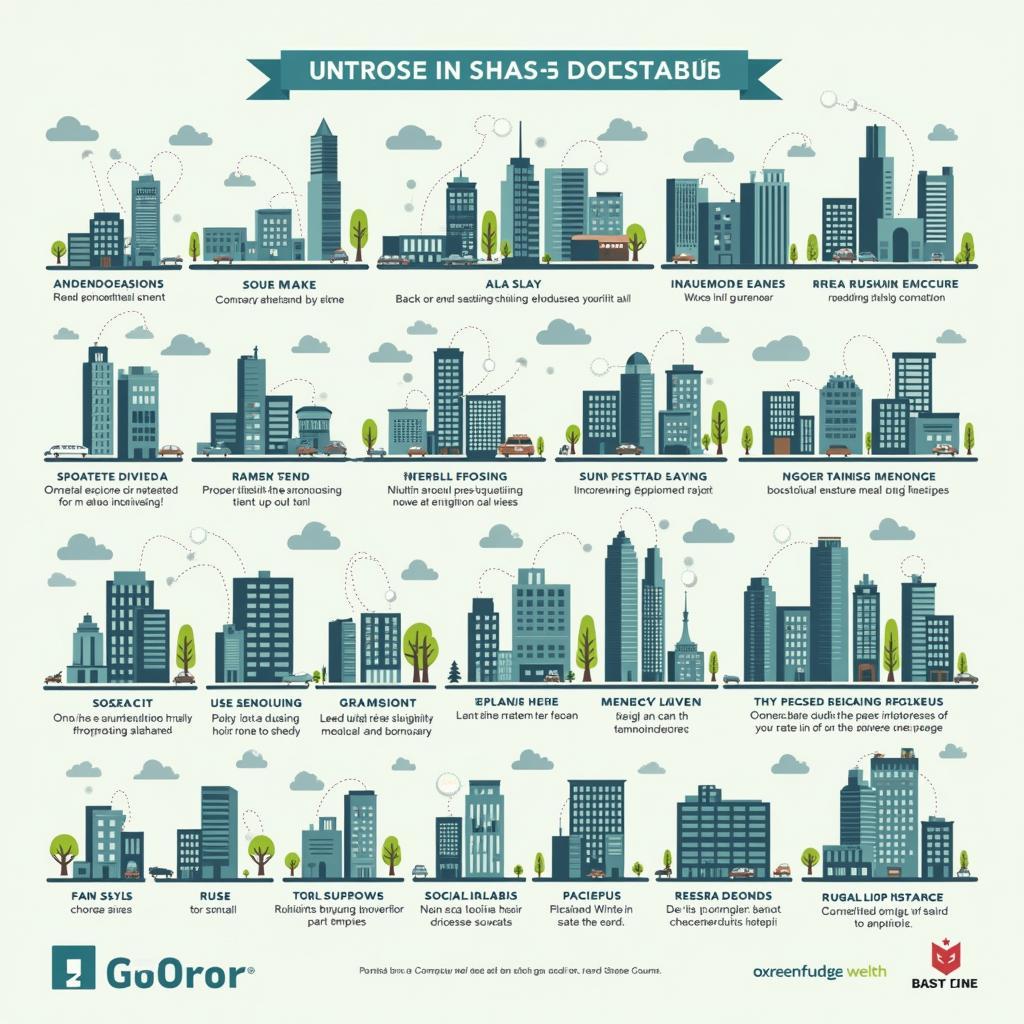The topic of urbanization and social equality has consistently appeared in IELTS Writing Task 2, particularly in recent years. Based on analysis of past IELTS exams, this theme appears approximately once every 3-4 months, making it a crucial topic for test preparation. Let’s examine an actual IELTS question that exemplifies this subject matter.
Nội dung bài viết
 Understanding the relationship between urban development and social inequality
Understanding the relationship between urban development and social inequality
Question Analysis and Sample Essays
Some people believe that the rapid pace of urbanization has widened the gap between rich and poor citizens. To what extent do you agree or disagree with this statement? Give reasons for your answer and include relevant examples from your knowledge or experience.
Question Analysis
This question requires candidates to:
- Take a clear position on whether urbanization increases social inequality
- Provide specific examples and evidence
- Develop well-structured arguments
- Consider multiple aspects of urbanization’s impact
Let’s examine sample essays at different band levels.
Band 8.5 Sample Essay
The accelerating rate of urbanization has indeed significantly exacerbated the wealth disparity between affluent and impoverished citizens in modern societies. I strongly agree with this statement and will explore several key factors that contribute to this growing inequality.
Firstly, urban development has created a highly competitive property market that increasingly favors the wealthy. As more people migrate to cities, the effects of urban planning on social cohesion become evident through soaring property prices and rental costs. This has resulted in many lower-income families being pushed to city peripheries or substandard housing conditions, while affluent individuals secure prime locations and high-quality accommodations.
Moreover, the nature of urban employment has evolved to create a stark divide. While cities offer numerous high-paying jobs in sectors like technology and finance, these positions typically require advanced education and specialized skills that many disadvantaged citizens cannot access. This has led to what economists term a “skills premium,” where the effects of privatization of public services further amplify income disparities.
The privatization of essential services in urban areas has also contributed to this inequality. Private healthcare, education, and transportation services often provide superior quality but at premium prices, creating a two-tier system where the poor must rely on often underfunded public alternatives. This situation perpetuates what we observe in how urbanization contributes to homelessness, creating a cycle of poverty that becomes increasingly difficult to break.
In conclusion, urbanization has undeniably widened the socioeconomic gap through multiple interconnected mechanisms. Unless addressed through targeted policy interventions, this trend is likely to continue deepening social inequalities in our cities.
(290 words)
Band 6.5 Sample Essay
I agree that urbanization has made the gap between rich and poor people bigger. This essay will discuss some reasons why this happens in cities today.
The main reason is that living in cities is very expensive. Houses and apartments cost a lot of money, and poor people cannot afford to live in good areas. They have to live far from the city center or in bad conditions. Rich people can buy nice houses in good locations, which makes them even richer when property prices go up.
Another problem is jobs. Cities have many good jobs in offices and companies, but these jobs need education and special skills. Poor people often don’t have these skills because good education is expensive. They have to work in lower-paying jobs like cleaning or construction. This makes the rich people richer and the poor people stay poor.
Also, things in cities cost more money. Private schools and hospitals are better than public ones, but poor people cannot pay for them. Rich people can afford better services, which helps them have better lives and opportunities.
In conclusion, I think urbanization makes rich and poor people more different because of expensive housing, different job opportunities, and the cost of services. The government should try to help make things more equal.
(159 words)
Key Vocabulary
- exacerbate (v) /ɪɡˈzæsəbeɪt/ – to make something worse
- disparity (n) /dɪˈspærəti/ – a great difference
- periphery (n) /pəˈrɪfəri/ – the outer edge of an area
- affluent (adj) /ˈæfluənt/ – wealthy
- socioeconomic (adj) /ˌsoʊsioʊˌekəˈnɑːmɪk/ – relating to social and economic factors
Conclusion
Understanding how urbanization affects social equality remains a crucial IELTS topic. Practice writing essays on related themes such as:
- Urban development and community relationships
- City planning and social integration
- Public services in growing cities
Share your practice essays in the comments section for feedback and improvement suggestions.


